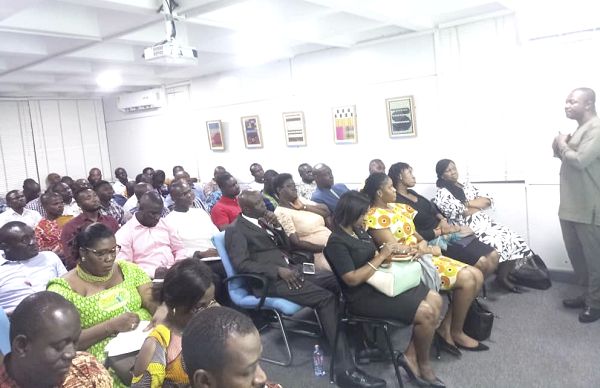
Amend Public Procurement Law — Essilfie-Baiden
A senior procurement consultant, Mr Ebenezer Essilfie-Baiden, has called for an amendment in the Public Procurement Law to establish a stipulated tenure for Entity Tender Committees (ETC) in public institutions to a minimum of two and a maximum of four years.
He said the current arrangement in the law “leaves it open to the discretion of the institutions”.
The consultant also urged public procurement professional bodies to cap the duration for their members who served on ETCs of public institutions.
That, according to Mr Essilfie-Baiden, would ensure that the ETCs, particularly the professionals nominated to serve on them, were effective in the delivery of their mandate to ensure value for money.
"Currently, there is no law that gives ETCs a particular tenure, so different institutions have adopted their own ways of dissolving and reconstituting their ETCs.
In some institutions, when the head of the institution changes, the ETC is reconstituted and that is not healthy practice for those institutions," he added.
Capacity development
Mr Essilfie-Baiden made the call when he addressed participants in a capacity. building programme for procurement officers organised by the Chartered Institute of Procurement and Supplies (CIPS) in Accra last Friday.
The programme, which was on the theme: "The public procurement Act 663 (as amended): Efficient application and the role of professionals at the Entity Tender Committee (ETC)", was aimed at developing the capacity of the procurement officers to make them more effective.
Law
Section 20 of the Public procurement Law demands that organisations set up Procurement ETCs and allow two members from professional bodies to serve on the boards.
Such members are supposed to help review the procurement processes as presented in the evaluation report of organisations, as well as serve as a check on the processes to ensure that value for money is obtained in the procurement activities of organisations.
"The discussion we are having is that the professional bodies may determine that they want to change the professionals nominated on to these bodies based on the performance or feedback they may have got from the people or may determine that for the tenure of a particular government, they will keep them there, but I am of the view that professional bodies should cap the duration to a minimum of two years and a maximum four years," Mr Essilfie-Baiden said.
He explained that as changes occurred in various organisations, different people ought to be given the opportunity to contribute their skills to building vibrant organisations.
The consultant further observed that once professionals became familiar with the leadership of a particular organisation, they might not be able to assert their influence.
"When you become too familiar with people, sometimes it becomes very difficult to criticise them the way you ought to do.
“Occasionally, when new faces join as nominations from the professional bodies, it goes a long way to strengthen the way work gets done," Mr Essilfie-Baiden added.
Advice
The Branch Chairman of the CIPS, Mr Paa Kwesi Crentsil, advised procurement officers to always act professionally in their line of duty.
"I will advise that we must study and seek to understand the public procurement law, the public financial management law and understand corporate practices to enable us to contribute effectively to the organisations that we are nominated to serve.
"Public procurement is structured in a way that you have to read and know to be able to offer the needed technical advice.
Let us also seek senior colleagues' advice where necessary, to make the right impact," he added.
